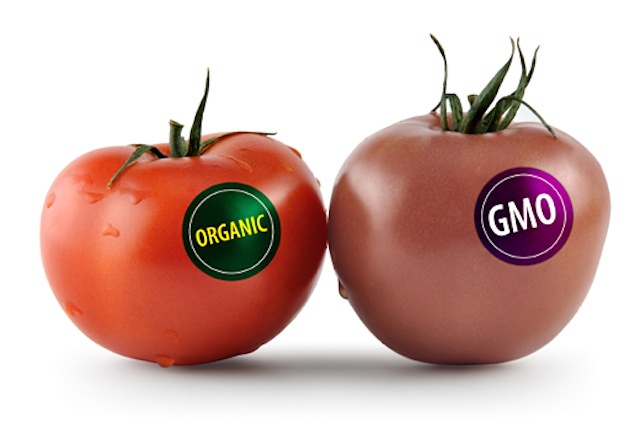Ghana: Public views on GMOs, seed laws and biosafety

Food Sovereignty Ghana organized a capacity building and skills sharing workshop on 27-28 February to discuss the Biosafety Law, the Plant Breeders Bill and the Plant and Fertilizer Act (seed law). Civil society organizations, smallholder farmers, the media, scientists and concerned members of the public attended the meeting. Here are the thoughts that came out of the meeting
GHANA’S PLANT BREEDERS’ BILL
The workshop discussed the key features of the Bill, noting that the Bill is modeled on the 1991 Convention of the International Union for the Protection of New Varieties of Plants (UPOV). It was noted that few developing countries are members of UPOV and of these most are members of UPOV 1978 and not UPOV 1991. It also emerged that the 1991 Convention is a restrictive and an inflexible regime that does not allow Ghana to develop a legal framework for plant variety protection that suits the agricultural conditions prevailing in Ghana.
The intellectual property agreement in the World Trade Organization (known as the TRIPS Agreement) allows Ghana to develop a ‘sui generis’ (of its own kind) system for plant variety protection. Ghana should use this flexibility to develop a plant variety protection/plant breeders’ regime that suits its national conditions as many developing countries have done. The bill pending in the Parliament fails to do that.
The Bill is unbalanced and inequitable. It strengthens breeders’ rights and does not reflect the interests and needs of the smallholder farmers that are the backbone of Ghana’s agricultural system. Breeders of new, distinct, uniform and stable varieties are given extensive rights under the Bill. On the other hand, the Bill does not accommodate the specific characteristics of farmer varieties and nor does it contain specific provisions that safeguards the interests of smallholder farmers such as their right to freely use, save, sell and exchange farm saved seeds.
The Bill only states that the minister shall in making regulations take into account the need to safeguard the legitimate interests of breeders and to permit farmers to make ‘personal use on their own holdings’ of farm saved seed. This is a very limited provision and it is simply unacceptable that it does not safeguard the interests of millions of smallholder farmers in Ghana.
It is also equally unacceptable that the Bill places the burden of enforcing the private rights of breeder on the state and taxpayer by criminalizing infringement of breeders’ rights.
The Bill also lacks safeguards that are important to protect public interest and to prevent misappropriation of Ghana’s genetic resources as well as to ensure fair and equitable sharing of benefits arising from the utilization of local germplasm.
The workshop also noted that the Bill has been developed without consultations with the wider civil society and smallholder farmer community.
The workshop noted that the Bill is inconsistent with Ghana’s obligations under the Convention on Biological Diversity and the International Treaty on Plant Genetic Resources for Food and Agriculture.
GHANA’S BIOSAFETY ACT
Ghana’s Biosafety Act is often referred to as the worst such law on the continent as it contravenes several provisions of the Cartagena Protocol on Biosafety, an international environmental agreement to which Ghana is Party. This Protocol was negotiated by the international community to regulate genetically modified organisms (GMOs) in recognition that this technology is new and poses risks to the environment, human health and society.
The Ghana Biosafety Act allows the regulatory agency to grant exemptions that undermine the risk assessment and public consultation processes of the Biosafety Protocol. It also ensures that independent oversight of GMOs is near impossible by seriously limiting public access to information and participation in decision-making. The Ghanaian Act represents a permitting system to allow foreign corporations to sell their product rather than a Biosafety System designed to protect the health, environment and socio-economic well-being of Ghanaians. GMOs are designed for large-scale industrial farmers and have no place in Ghana’s agricultural system, which is based on small-holder farmers.
GHANA’S PLANT AND FERTILIZER ACT
Ghana’s Plants and Fertilizer Act, 2010, Act 83 in Part Two deals with seed regulation. It promotes/supports only industrial plant breeding and does not deal with smallholder farmer managed seed systems, the need for the conservation of land races and traditional varieties and ignores farmers’ rights. The entire orientation of the law is towards genetically uniform, commercially bred varieties in terms of seed quality control and variety registration. It creates an exclusive seed market for certified improved, commercial varieties of seed and excludes farmer varieties from this marketing system. The market for registered seed is not for African farmer breeders but for multinational companies. The implementation of this Act will result in the total marginalization of small farmers and their needs and is also setting the stage for thousands of small elite farmers who will be drawn into seed certification systems, which can later also be used for GM seed production in the near future.
* THE VIEWS OF THE ABOVE ARTICLE ARE THOSE OF THE AUTHOR/S AND DO NOT NECESSARILY REFLECT THE VIEWS OF THE PAMBAZUKA NEWS EDITORIAL TEAM
* BROUGHT TO YOU BY PAMBAZUKA NEWS
* Please do not take Pambazuka for granted! Become a Friend of Pambazuka and make a donation NOW to help keep Pambazuka FREE and INDEPENDENT!
* Please send comments to editor[at]pambazuka[dot]org or comment online at Pambazuka News.
